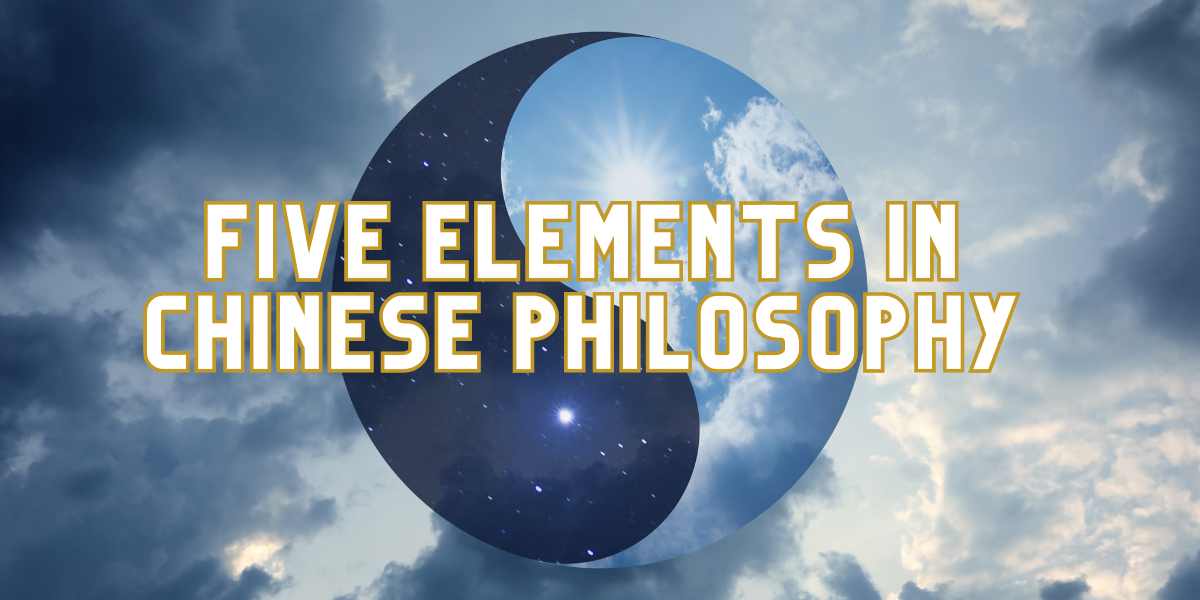Exploring the Five Elements in Chinese Philosophy
A Journey Through Metal, Water, Wood, Fire, and Earth
Chinese philosophy has long been intertwined with the concept of the five elements, each representing a fundamental aspect of existence. In this blog, we delve into the essence of these elements: Metal, Water, Wood, Fire, and Earth, and uncover their significance in Chinese culture and beyond.
Introduction: The Foundation of Chinese Philosophy
Chinese philosophy is deeply rooted in the understanding of the natural world and its elements. The concept of the five elements, also known as Wu Xing, has been a cornerstone of Chinese thought for thousands of years.
Element 1: Metal (Jin)
Metal represents precision, strength, and clarity. It is associated with qualities such as organization, discipline, and determination. In Chinese philosophy, metal is often linked to the autumn season and the West.
Element 2: Water (Shui)
Water embodies adaptability, flow, and the ability to find the path of least resistance. It signifies emotional depth and flexibility. Water is typically associated with the winter season and the North.
Element 3: Wood (Mu)
Wood represents growth, expansion, and vitality. It signifies the qualities of innovation, creativity, and the ability to adapt and thrive. Wood is linked to the spring season and the East.
Element 4: Fire (Huo)
Fire symbolizes passion, transformation, and intensity. It represents the energy to create change and embodies qualities of enthusiasm, courage, and leadership. Fire corresponds to the summer season and the South.
Element 5: Earth (Tu)
Earth is the element of stability, grounding, and nurturing. It signifies balance, reliability, and the ability to provide support. Earth is associated with the late summer season and the Center.
The Interplay of Elements
In Chinese philosophy, the five elements are not seen as isolated entities but as interconnected forces. They interact with each other, either promoting or inhibiting one another, creating a dynamic balance in nature and human life.
Beyond Chinese Culture
While the concept of the five elements originates in Chinese philosophy, it has found resonance in various cultures worldwide. Many holistic practices, including traditional Chinese medicine, feng shui, and even astrology, incorporate the five elements to understand and enhance life’s harmony.
Conclusion: Embracing the Balance
The five elements offer us a profound insight into the intricate balance of nature and existence. By recognizing their significance, we can gain a deeper understanding of ourselves and the world around us, fostering harmony and equilibrium in our lives.
Frequently Asked Questions (FAQs)
- Can the five elements be applied in daily life?
Absolutely. Understanding the elements can help us make more balanced choices in various aspects of life.
- How does the concept of the five elements relate to feng shui?
Feng shui, the practice of arranging our environment, is heavily influenced by the principles of the five elements to enhance energy flow and harmony.
- Are there Western equivalents to the five elements?
While not identical, some Western traditions and philosophies have analogous concepts to the five elements, such as the four classical elements of earth, water, air, and fire.
- Can one element dominate a person’s character?
In Chinese philosophy, it’s believed that individuals have dominant and secondary elements that influence their character and behaviour.
- How can I apply the principles of the five elements in my daily life for balance and harmony?
Exploring the characteristics of each element and their interactions can help you make choices that align with your desired balance and well-being.
Unlock the wisdom of the five elements and embark on a journey of self-discovery and balance. Access Now.
Try a Yin Class at Lifestyle Yoga here or become a certified yin yoga teacher with sumit manav. Know more




